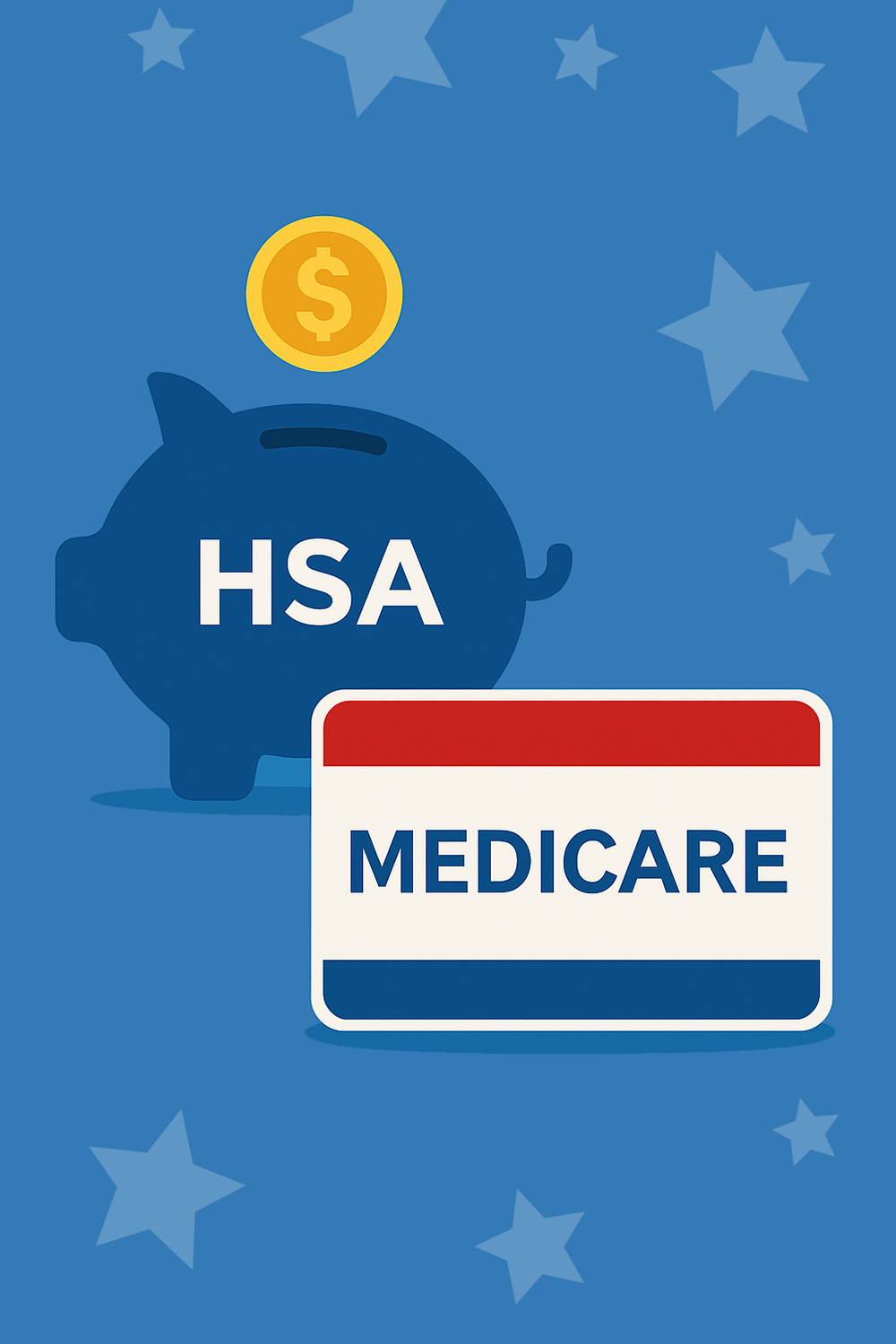HSAs and Medicare: What You Need to Know
Health Savings Accounts (HSAs) are a powerful tool for saving money on health care costs. But if you’re approaching age 65 and starting to think about Medicare, the rules around HSAs can get a little tricky. Here’s a simple guide to help you understand how HSAs and Medicare work together.
Can You Contribute to an HSA After Enrolling in Medicare?
The short answer: No.
-
As soon as you enroll in any part of Medicare (even just Part A), you’re no longer eligible to contribute to an HSA.
-
If you keep putting money in after you’re covered, those contributions are considered “excess contributions” and may come with a tax penalty.
Timing Matters: The Retroactive Rule
Here’s the part that surprises many people:
-
When you sign up for Medicare Part A, your coverage can be retroactive for up to six months, but only back to your 65th birth month. No further than that.
-
That means you’ll need to stop HSA contributions six months before applying for Medicare to avoid penalties. If you accidentally contribute when you are on Medicare, you may have a tax penalty when filing taxes.
Example: If you apply for Medicare in July, Part A may be backdated to January. Any HSA contributions made from January to July would count as “excess.” But if you turned 65 in April, Part A would only be backdated to only to April.
What Happens to Your HSA After You Enroll?
Even though you can’t contribute anymore, your HSA savings are still yours. You can continue to use the money:
-
For Medicare premiums: Part B, Part D, or Medicare Advantage plans
-
For out-of-pocket costs: deductibles, copays, and coinsurance
-
For other eligible medical expenses
Note: You cannot use HSA funds to pay Medigap (supplement) premiums.
Planning Ahead
To avoid mistakes:
-
Mark your calendar. Plan to stop HSA contributions at least six months before you enroll in Medicare.
-
Talk to your employer’s HR or benefits team. If you’re still working at 65, they can help you time things correctly.
-
Keep your funds growing. Even without new contributions, your HSA remains tax-advantaged and continues to be a valuable resource for health care costs in retirement.
The Bottom Line
HSAs and Medicare don’t mix when it comes to new contributions, but the money you’ve saved remains a powerful resource. With a little planning, you can avoid penalties and make the most of your savings as you transition into Medicare.
HSA & MEDICARE FAQs

© 2025 Allison Clayton. All Rights Reserved.
Not connected with or endorsed by the United States government or the federal Medicare program.
The official US government website for Medicare is http://www.medicare.gov/.
We do not offer every plan available in your area. Currently we represent 9 organizations which offer 84 products in your area.
Please contact Medicare.gov, 1-800-MEDICARE, or your local State Health Insurance Program (SHIP) to get information on all of your options.

